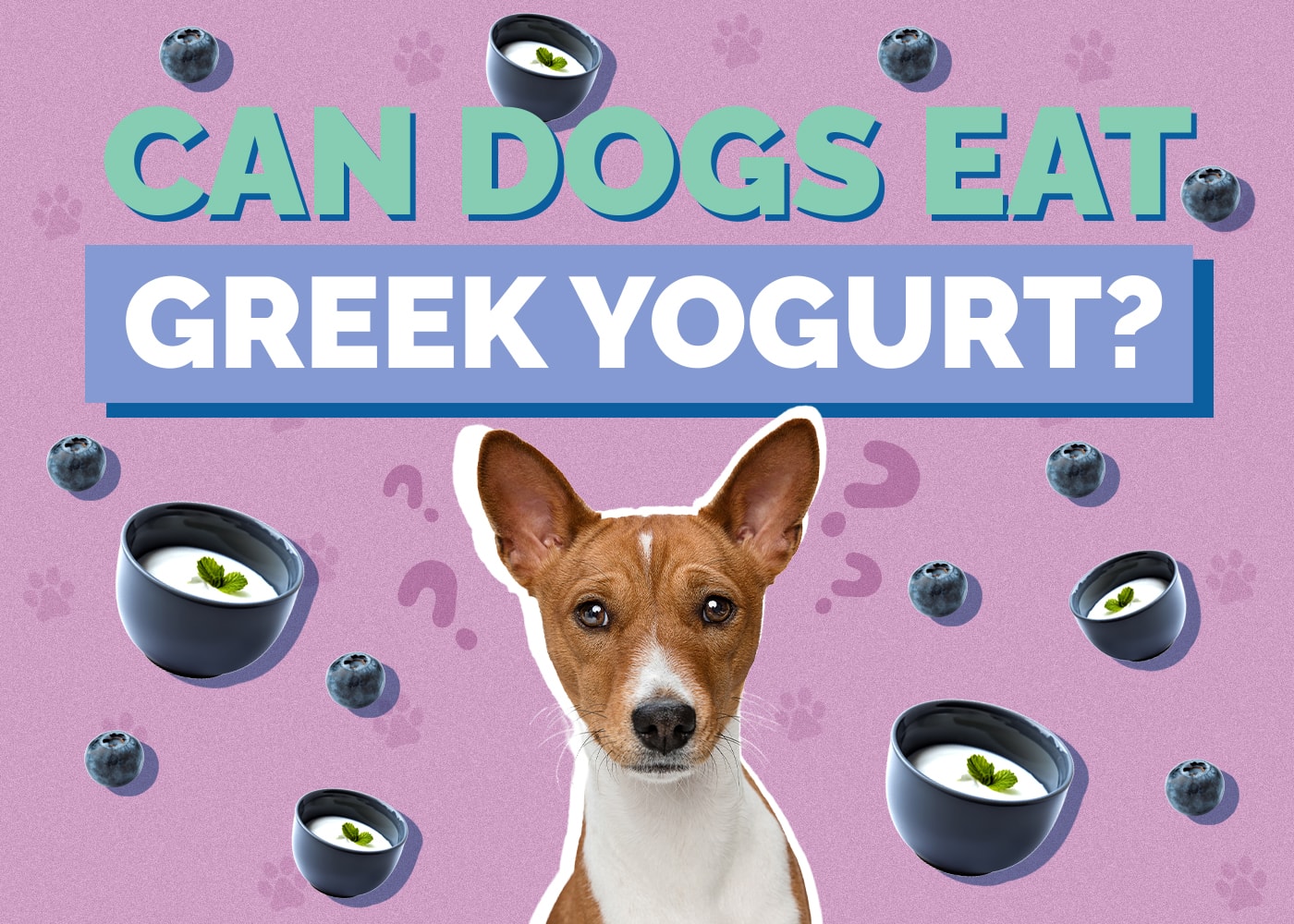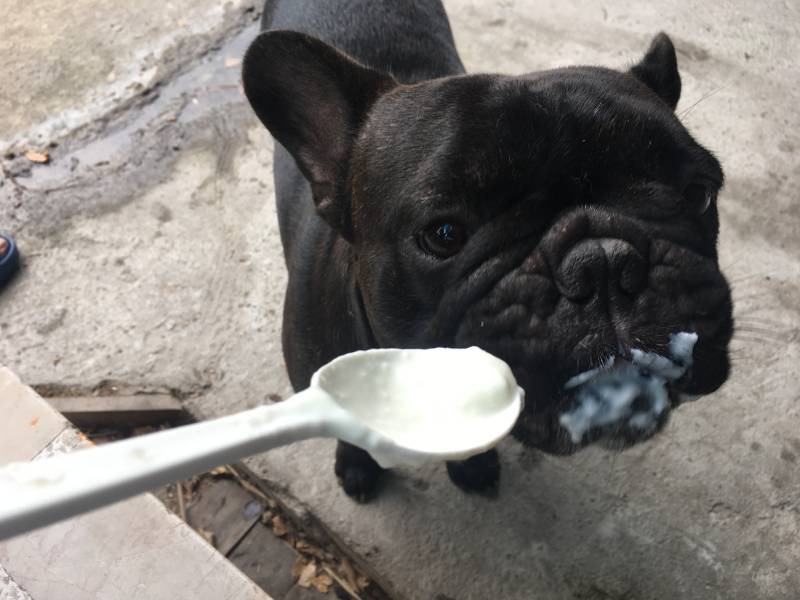Can Dogs Eat Greek Yogurt? Vet Reviewed Nutrition Facts & FAQ
By Brooke Bundy
Updated on

Greek yogurt is typically a healthier choice for humans than regular yogurt. Due to the way it’s strained, it contains less lactose—which means less sugar—and also has a higher amount of protein. Some dogs crave the slightly soured taste and dog popsicle recipes often use Greek yogurt as a primary ingredient. But is it healthy for them? Typically, dogs can eat plain Greek yogurt in moderation. However, if lactose intolerance is an issue, you should probably find them an alternative snack.
What Is Greek Yogurt?
Greek yogurt is notably healthier than regular yogurt because of the way it’s processed. Greek yogurt is made by boiling milk and then straining the whey, which is the leftover curdled milk. This process removes some of the lactose and sugars while doubling the protein and preserving its distinctive sour twinge.
All types of yogurt contain probiotics. These beneficial bacteria fight the bad bacteria that are always invading your dog’s body. The GI tract is an underrated part of the body that can influence their health in so many ways beyond their digestive system. In humans, an out-of-whack GI tract can even be linked to heart disease. Thus, both Greek yogurt and regular yogurt can help restore the gut’s naturally occurring flora and promote overall health.

Is Greek Yogurt Safe for Dogs?
Plain Greek yogurt is generally safe for dogs in moderation as long as they don’t experience digestive upset related to dairy. Avoid flavored or sweetened yogurt of any kind. Sugar leads to obesity, which can cause life-threatening illnesses, and artificial sweeteners are even worse. Xylitol is the most notorious artificial sweetener that can cause deadly seizures in dogs. Added ingredients may pose a choking hazard or may even be poisonous, such as chocolate or coffee. Always read the ingredients label to determine whether you truly have plain yogurt with no added ingredients.
Dogs that struggle with extra body weight may need a fat-free Greek yogurt, or alternative snack due to the calories and fat content. If you have any concerns, call your vet before feeding them any new treat or making dietary changes.
How to Feed Your Dog Greek Yogurt
Even if your dog doesn’t experience issues with dairy, you still don’t want to feed them an overabundance of Greek yogurt due to the high amount of calories and fat. You might try feeding your dog a tablespoon a day, or opting for a treat that contains yogurt. For example, some dog popsicle recipes also feature Greek yogurt as an ingredient. This is an especially good idea on a summer day because it refreshes and hydrates your dog while providing them with a probiotic boost.

Greek Yogurt Alternatives
If you’re concerned about the dairy milk in Greek yogurt, you might try to feed your dog goat’s milk instead. While it still contains lactose, the amount is significantly lower than cow’s milk. The good news is that the probiotics are still included, so your dog is still receiving the gut support they need while enjoying a snack that’s safer for their tummy.
If your dog is truly lactose intolerant, you can opt for plant-based milk as long as it’s plain and doesn’t contain any harmful ingredients. Unsweetened oat or soy milk is an excellent choice that won’t add too many extra calories. Coconut milk has a high fat content, so be cautious if you choose to indulge your pup. Almond milk isn’t recommended since the nuts can sometimes cause digestive upset.
Plant-based milks don’t contain probiotics though. If you want to give your canine friend some gut support, you might ask your vet if a probiotic supplement would help your pup.
Conclusion
As long as your dog isn’t lactose intolerant, you can give them Greek yogurt in moderation. Just be sure it’s plain, with no sweeteners or added ingredients that are harmful to them, such as chocolate. Greek yogurt contains beneficial probiotics and protein, which makes it a generally healthy snack. Watch their portions, however, since Greek yogurt usually contains a high amount of calories and fat. If your dog does experience discomfort with dairy, you might opt for goat’s milk or a safe plant-based formula instead. Talk to your vet to see if a probiotic supplement might be a safe way for your lactose intolerant pup to get some GI support without the dairy.
Featured Image Credit to: Varvara Serebrova, Shutterstock












